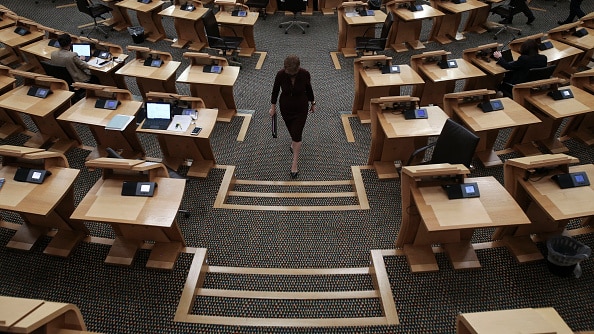Scotland’s Catholic bishops have objected to a proposed ban on so-called “conversion therapy” because they say it would effectively open the way for a persecution of the Church.
They claim that it would prevent the Catholic Church from preaching the Gospel and transmitting the faith in parishes, schools and private homes.
Priests will be banned from working in Scotland, the Catholic Church could lose its charitable status, and classroom and pastoral support teachers could also lose their jobs if the plans are accepted by the Scottish Government, the bishops say.
“The conclusions of the Scottish Government’s ‘expert’ advisory group on ‘Ending Conversion Practices’ are gravely concerning,” the bishops said in a statement.
“If accepted, legal counsel has warned that they would outlaw pastoral care, prayer, parental guidance and advice relating to sexual orientation, expression of sexual orientation, gender identity and gender expression, other than that which is deemed by the state to constitute ‘affirmative care’.
“These proposals, if passed by the Scottish Parliament, would criminalise mainstream religious pastoral care, parental guidance, and medical or other professional intervention relating to sexual orientation, unless it was approved by the State as acceptable.
“It could criminalise the Church’s teaching about God’s creation of the human person as male and female and the meaning of sex as within marriage, and that anyone who proposes this teaching to someone with same sex attraction or gender identity issues would face sanctions. “This would apply even if the person with these issues wanted help to follow Church teaching since this law would say they cannot consent to this teaching.”
Conversion therapy refers to professional or pastoral assistance aimed at helping people overcome unwanted same-sex attractions.
The bishops said they supported legislation “which protects people from physical and verbal abuse”.
They said, however, that the failure of the committee to define “conversion practices” combined with its determination to extend the scope of the legislation “is gravely concerning in regard to freedom of religion and expression”.
The Christian Institute said existing law is already sufficiently robust to prosecute abusive “quack medical practitioners and charlatan preachers”.
The campaign group has expressed concerns similar to the Scottish bishops that the new proposal would penalise repentance and those assisting it, including advice given in good faith to someone who asks for it.
Similar moves are under way in the Irish Republic where Roderic O’Gorman, the Equalities and Integration Minister has promised to bring a Bill before the Dail to ban “conversion therapy”.
O’Gorman, a Green Party TD who is openly homosexual, said he will push to get the Bill through by the end of the year even though he admits that conversion therapy is rare.
His initiative has prompted UK-based gay activist Jayne Ozanne to urge Westminster to follow his example.
Ozanne, chair of the Ban Conversion Therapy group, has previously called for “gentle, non-coercive prayer” to be prohibited as part of measures to outlaw such practices.
“I’m trying to ban harmful prayer that has a predetermined purpose that is directed at an individual with an aim to change,” she told Premier Christian Radio.
Ciarán Kelly, the Christian Institute’s deputy director, said: “People should of course be protected from physical and verbal abuse, but most of these practices are already illegal.
“The Irish Government would do well to apply the law and if genuine loopholes exist close them but don’t make Scotland’s mistake of introducing a totalitarian ban that criminalises preaching, praying and parenting.”
In a legal opinion, barrister Aidan O’Neill has said that the “fundamentally illiberal” proposals to prohibit broadly-defined conversion therapy are “beyond the powers of the Scottish Parliament to legislate”.
<em>(Photograph of Nicola Sturgeon in the Scottish Parliament Debating Chamber courtesy of Getty images)</em>



